 |
| Final session |
Several Archive volunteers recently attended the Economic, Social and Cultural Rights in the Occupied Territories conference and related events at the Australian National University in Canberra. We had a great time catching up with each other and old friends, and making lots of new ones. Some of us also attended the annual National Palestine Advocacy Solidarity Gathering hosted by Australia Palestine Advocacy Network the day after the conference.
Being back at ANU reminded us of other conferences we've attended there. I think I've presented on Palestinian issues at about seven, but my all time favorites were:
- presenting "Symbolic defiance: contemporary Palestinian issues of culture, identity and nationalism" at Carolyn Turner's extraordinary "Art & Human Rights" Conference. It was such an honour to even make the program of that event
- presenting "Commemorating Palestine: Diasporic Cultural Heritage / Identity Construction Within the Contemporary Palestinian Narrative"at the "Edward Said: Debating the Legacy of a Public Intellectual" conference convened by Debjani Ganguly and Ned Curthoys and sponsored by the Centre for Cross-Cultural Research. Really great conference.
- presenting "Thematic narratives of political protest, pain and death within contemporary Palestinian cultural expression" at ANU's Pain and Death: Politics, Aesthetics, Legalities conference. Fascinating conference, that one.
Now we were all back again at ANU for another human rights conference, but this one specifically related to Palestine. I first met it's convenor Dr Victoria Mason in 2002 at the First World Congress of Middle Eastern Studies in Mainz, Germany, where we were both presenting and where the Archive was displaying "Symbolic Defiance: Palestinian costume and embroidery since 1948". She very kindly wrote a review - as this was the traveling exhibition 'lost' in transit at LAX on it's way to it's next venue (at the MESA conference in 2003) Dr Mason's review is one of the few this important exhibition received and we treasure it on our website to this day.
Here's some details from the human rights conference's website:
Here's some details from the human rights conference's website:
"On the 11th and 12th September 2013 The Australian National University will host a groundbreaking conference on Palestinian human rights.
"The Israeli occupation of the Palestinian Territories has impacted both the civil and political rights (CPR) and economic, social and cultural rights (ESCR) of Palestinians. Yet in line with the broader marginalisation of ESCR within the international human rights field, very little of the literature on the human rights situation in the Palestinian territories addresses issues specifically from the ESCR framework.
"The impact of the occupation on Palestinian ESCRs has been considerable: including restrictions on movement (as a result of the ‘Security/Separation Wall’, checkpoints, curfews and closure policies) and the resultant impact on the Rights to Education and Health; de-institutionalisation of the Palestinian economy; expropriation of Palestinian land and resources (including water); forced evictions and house demolitions; and destruction of land and property.
"This conference will be a world first by bringing leading international experts together to discuss ESCRs in the Occupied Palestinian Territories (OPT). Over the two days, panels of these experts will address the following issues within the OPT:
The Right to Health (including access to adequate medical services and treatment)
The Right to Education
The Right to Adequate Water and Food Security
The Right to Adequate Housing (including issues around house demolitions)
The Right to Work
The conference will examine these issues through focusing on:
Human rights obligations enshrined in international law
Duty-holders of these obligations (including the Israeli Government and the Palestinian Authority)
Evidence of violations
Mechanisms for complaints and other forms of remedy for violations
Practical steps for implementing and monitoring ESCRs
 |
Professor Jeff Halper speaking
|
It was a very interesting couple of days. The conference was fully subscribed, so there was a good crowd. Lots of great presentations, you came away really feeling you'd learned something about each topic and an honour to meet the speakers. Lots of informal discussions, in part facilitated by having attendees sit at round dinner tables.
Here's the transcript from an SBS journalist who attended the second day and really picked up on things that mattered:
Reviewing the state of Palestinians' human rights by Thea Cowie, SBS Radio Transcript from SBS World News Australia Radio 13 SEP 2013
"Israeli-Palestinian peace talks have resumed and fighting has died down, but human rights experts say life for Palestinians is harder than ever.
"International academics and activists have gathered at the Australian National University in Canberra for a wide-ranging conference on the state of human rights in the Palestinian territories. Direct peace talks between Israel and the Palestinians resumed late in July, after a three-year stalemate in the negotiations. No-one is expecting any quick breakthrough.
 |
| Professor Jeff Halper speaking |
"Israel-based Nobel Peace Prize nominee Professor Jeff Halper says life remains uncertain for the four-million Palestinians living in the Gaza Strip and the West Bank. He says Israeli occupation of the territories restricts all manner of rights - civil, political, economic, social and cultural.
"Professor Halper says his work to defend Palestinians' rights to housing is ongoing. "I've talked to many Palestinian women who say to me 'the first thing I do when I get up in the morning is I look out the window to see if there's bulldozers and soldiers and if the coast is clear I get dressed and wake up the kids and start making breakfast.' And in fact the family lived in their home for five years and one day in the middle of the day they're having lunch and there's a knock on the door.
"Saleem answers the door, Rami says to him 'is this your house?', Saleem says 'yes it's my house', he says 'no it isn't, it's our house now. You got ten minutes to get all your belongings our we're going to demolish it'. Here's where the soldiers literally kick in. Saleem was beaten and kicked out of his home. In the commotion Arabia managed to slam the door shut and she called us. So the soldiers broke the windows of the home, threw in tear gas to flush out the family, she was carried out unconscious, the kids screaming and yelling in all directions."
 |
| Dr Sarah Roy in the final session |
"Harvard University senior research scholar Doctor Sara Roy says the absence of violence with the Israelis does not mean the absence of difficulties for Palestinians. She believes the new peace talks will become just the latest in a series of failed discussions which have seen Palestinian rights gradually eroded since 1993.
"They've faced growing constraints. In fact what many people don't understand about this so-called peace process is that it diminished, and weakened and contracted Palestinian life rather than the opposite."
"Dr Roy and her colleagues argue the Israeli occupation compromises Palestinians' access to adequate medical services, water, education, food, housing and work. She says tasks like collecting groceries or going to school are exponentially complicated by more than 600 fixed and flying checkpoints dotted across the territories.
"And she says sometimes it's what people living elsewhere would regard as simple things that highlight how restrictive life is for Palestinians. "I have friends who live in Ramallah in the West Bank. The wife is from Gaza. Now Gazans are restricted from entering the West Bank and have been for a very long time. My friend has had two children they're now 12 or 13 years old. Their grandparents who live in Gaza have never seen their grandchildren and you're talking about distances that you can measure in the tens of miles. It is easier for Palestinians to go to the United States than it is to travel between West Bank and Gaza."
"PhD Candidate at Queens University Belfast, Lucy Royal-Dawson has conducted interviews with Palestinian students about their lives.
 |
| Lucy Royal-Dawson Queens University Belfast |
"She says Israeli occupation has become so normalised that Palestinians don't realise the barriers they face. "The last question I asked in a lot of the interviews was 'and so how does the occupation affect your education?' and people would say 'no, no it doesn't. It used to but not any more.' And you think 'wow, that's how deep the normalisation has become that people can no longer see it, it's only represented by acts of violence.'"
"Despite the ongoing difficulties, academics like Sara Roy do see glimmers of hope. Like earlier this year, when a three-year-old Jewish boy fell from the fourth floor window of his home in Israel and was later declared brain-dead. His parents decided to donate his organs to a Palestinian boy.
"Dr Roy says she's heard other similar stories - not many, but some. "In the final analysis people are human beings and I truly believe, and I've seen many examples of this in my many years over there, that when you bring people together and you allow them to see each other as human beings, as monthers, as fathers - that often, not always, but often - people can sometimes break down these terrible political barriers that have been erected for them and this is one powerful example of that."
"Professor Jeff Halper, an American Israeli, has been arrested numerous times defending the rights of Palestinians. He's a co-founder of the Israeli Committee Against House Demolitions, which helps Palestinians to replace homes destroyed by Israeli authorities in the occupied territories. Professor Halper says the committee's work shows Israelis and Palestinians can work together. "We've built 187 homes in the last 12 or 13 years which isn't much in a humanitarian way. But if you think of it as 187 joint acts of resistance of Israelis and Palestinians then it really means much more than that."
"The conference at the ANU has been criticised by Jewish community leaders who say speakers lacked academic credibility, and that it amounted to blatant anti-Israel advocacy."
We won't give that criticism further fuel, other than to say we totally enjoyed our time amongst "fringe conspiracy theorists and ideologues", and "scholars [with] no academic credibility" :). But if you are interested we recommend a quick read of our favorite response: Middle East Reality Check's post Anatomy of a beat up. It was a pleasure to be sitting next to George Browning while he drafted this response to The Australian:
"In a democratic society, debate about human rights should be the most protected of all debates. Why is the topic of rights important everywhere except the occupied territories? Surely the effect of occupation of Palestinian land and control of the lives of Palestinians is essential information to Australians who support the activities of Israel in the occupied lands. In the mix of tensions that are the reality of the Middle East, any light on factors that contribute to those tensions should be encouraged. George Browning, president, Australia Palestine Advocacy Network, Canberra"
More info:
- Human Rights in Palestine, ANU
- Reviewing the state of Palestinians' human rights by Thea Cowie, SBS Radio Transcript from SBS World News Australia Radio 13 SEP 2013
- The Australian - Samah Sabawi letter (edited)
- Samah Sabawi on Facebook - full letter
- Middle East Reality Check - Anatomy of a beat up
- ABC - Rethinking Foreign Occupation - Philip Adams with Richard Falk and Jeff Halper
- Workers Bush Telegraph - ANU Palestine conference threatened




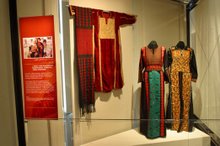






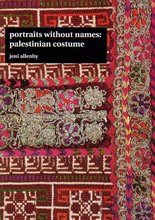
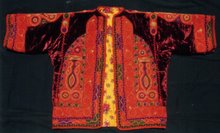
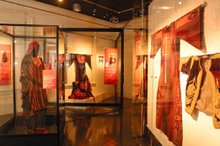
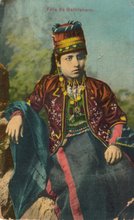

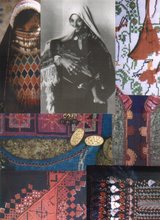













No comments:
Post a Comment